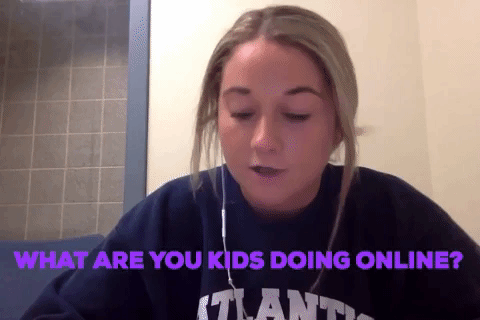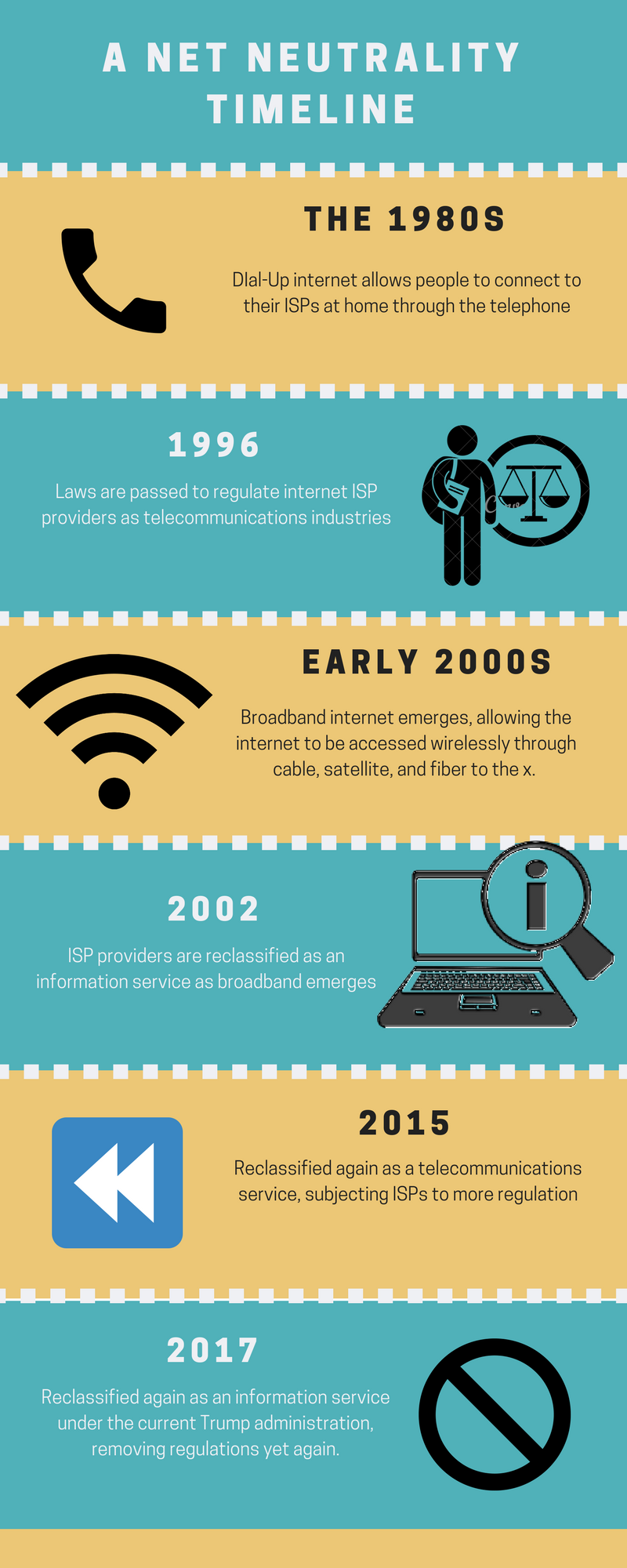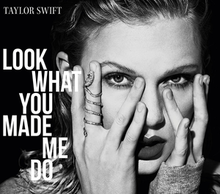As Americans, our freedom is extremely paramount in every aspect of our lives, including on the internet. We have the ability to search, watch, look up and do whatever we we want, lawfully, on the internet as a free and open medium. This is because of Net Neutrality. By definition, Net Neutrality is the principle that Internet service providers should enable access to all content and applications regardless of the source, and without favoring or blocking particular products or websites. We have the freedom to watch what we please and enjoy the content we desire. The term Net Neutrality was first used by Tim Wu in 2003 and since then, the Open Internet Order went into effect in November of 2011.

The open internet is essential, especially today. As the internet advances, we find ourselves spending majority of our lives online wether it be for work, school or socially. It gives us the freedom to create, connect and run businesses. Countless careers depend on the internet to function at all and without the open internet, they would be unable to sustain themselves without paying. The people’s entertainment is also an important factor that would be at risk with the FCC repeal. We would no longer be able to stream what we want at an appropriate speed or at all. Fast is everything today and it shouldn’t be up to others to decide what should and shouldn’t be streamed.
Now let’s focus in on a certain industry that would suffer drastically from the repeal of Net Neutrality: The gaming industry. Online gaming relies heavily on the speed by which they run. With the end to Net Neutrality, the end to the online gaming industry may not be far behind. With low connections and a slowed stream, games will begin lagging which for some games, makes them unplayable. This will obviously upset players and customers of these gaming websites and could result in a significant loss of business for the sites.
Freedom of the internet is important for all. Here is what some people have to say:
This is an egregious attack on our democracy. The end of #NetNeutrality protections means that the internet will be for sale to the highest bidder. When our democratic institutions are already in peril, we must do everything we can to stop this decision from taking effect. https://t.co/8GGrJFMdrU
— Bernie Sanders (@SenSanders) December 14, 2017
We’re disappointed in the decision to gut #NetNeutrality protections that ushered in an unprecedented era of innovation, creativity & civic engagement. This is the beginning of a longer legal battle. Netflix stands w/ innovators, large & small, to oppose this misguided FCC order.
— Netflix US (@netflix) December 14, 2017
If the FCC gets it’s way, we will be loosing the freedom to the internet and the freedom to access the lawful content we want and deserve. Net Neutrality is arguably one of the most important freedoms we have and we can’t just give it away.









